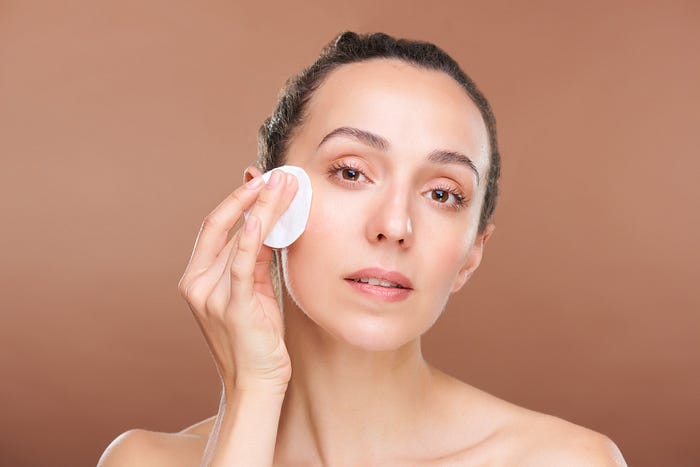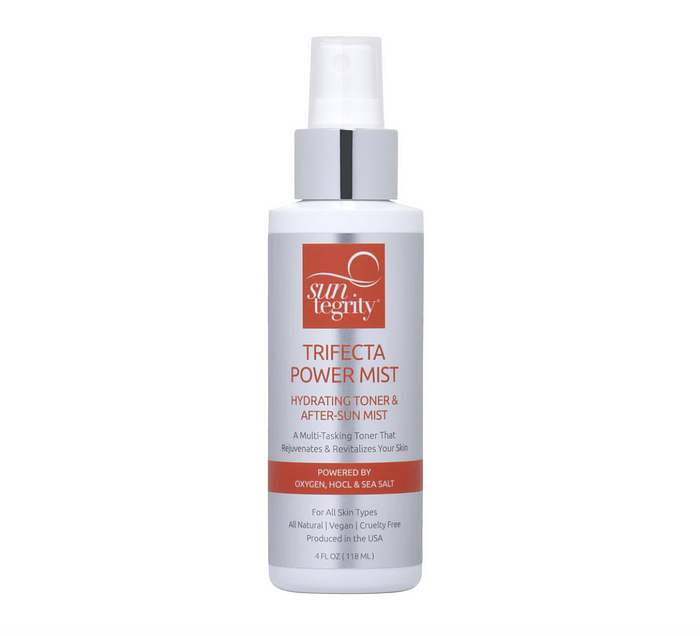How Hypochlorous Acid Can Benefit Your Skin

It reeks like pool chlorine, but stick with me here — regardless of the strong stench, it’s safe for the skin in the right formulation and can even be healing. I was weary too. Hypochlorous acid can be anti-inflammatory on the skin when pH-balanced and formulated properly for skincare. That’s the key here. I’ll be going more in depth about pH in a future article, because there’s so much behind that door when it comes to skincare, but I digress.
This study details the importance of pH balance for this ingredient to be effective and beneficial in skincare formulations, but to save you the read, let’s just say that you can’t use just any hypochlorous acid product on the skin. Make sure what you’re purchasing is formulated for topical use and pH-balanced. The product I recommend? The Trifecta Power Mist by Suntegrity ($26). Read on to find out why I love hypochlorous acid for acneic and irritated skin.

So, what is it exactly?
Hypochlorous Acid is created by our white blood cells as a part of its natural immune response to defend against bacteria, irritation, and injury to the skin. It’s antimicrobial but it differs from antibiotics in that it is “directly toxic to microbial cells, including many gram-positive and gram-negative bacteria . . . and their biofilms.” That’s huge. It is often formulated for use as a powerful disinfectant due to its antimicrobial properties in high concentrations. In skincare formulations it still holds antibacterial properties, and it can keep acne breakouts at bay by preventing bacteria growth.
As far as skin irritation goes, this star ingredient is known as an ideal wound-healing agent in the medical field. It doesn’t just help remove bacterial pathogens, it actually helps heal damaged skin, too. Due to its anti-inflammatory properties, it can also calm and soothe dermatitis (think: irritated, inflamed skin, eczema included).
What other ingredient do you know of that can help heal and prevent acne just as much as it can soothe eczema and irritated skin? These uses also point to a major use for hypochlorous acid sprays: for use under your face masks to prevent both maskne and contact dermatitis. It truly is a star ingredient for 2021. It’s safe for the most sensitive skin types and even sensitized skin — which many of us are dealing with these days. If you feel you’ve been overdoing it with your skincare, read here for how to rebalance over-exfoliated skin. If you like research-backed, educational articles on skincare, please consider clicking the follow button to catch the next one.
